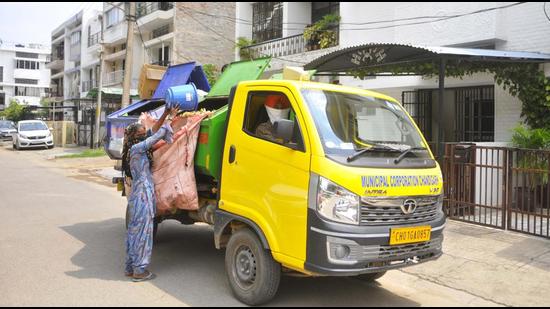Waste segregation: Chandigarh MC to study status across localities
To ensure 100% waste segregation at source, the Chandigarh municipal corporation will conduct a comprehensive study to assess its present status across sectors and colonies in the city
To ensure 100% garbage segregation at source, the Chandigarh municipal corporation will conduct a comprehensive study to assess its present status across sectors and colonies in the city.

MC commissioner Anindita Mitra on Wednesday directed the officials concerned to find out that how much segregated waste is being collected currently, and how various area are performing.
“We need to identify sectors and colonies from where we are not getting segregated waste. After the assessment, we will be able to direct our efforts on such locations and sensitise the locals,” said Mitra, who has also called a meeting of all sanitary inspectors and other officials concerned on September 11 to discuss the issue.
The MC had taken over door-to-door garbage collection in December last year, and has deployed around 525 two-bin vehicles to collect segregated waste. The vehicles were brought for around ₹40 crore cost through the Chandigarh Smart City Limited.
Nearly 80% localities have been covered with these vehicles, but the civic body is still receiving mixed waste from most areas. Though no exact figure is available, MC officials have earlier estimated that only 60% households are giving segregated wet and dry waste.
The collection of mixed waste is also affecting the working of the two material recovery facilities at the Industrial Area. Another facility is planned by December 2021.
These facilities have a dedicated space for sorting recoverable dry waste into different categories, including paper, card, recyclable plastic, glass bottles and metal. The leftover dry waste is moved to the compost plant at Dadumajra.
“There is no uniformity at material recovery facilities. While garbage collection vehicles from some areas bring segregated waste, others bring mixed waste. For the facility to function properly, we need to have segregated waste at source,” said Mitra.





